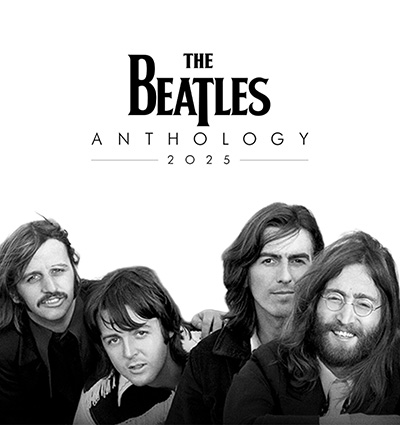‘Myopia’ Is “Pushing My Songwriting Into New Places” Says Agnes Obel
With her fourth album, ‘Myopia’, Agnes Obel “investigates the way the mind plays tricks”, creating a dark answer to Max Richter’s ‘Sleep’.

Danish-born, Berlin-based singer-songwriter and keyboardist Agnes Obel’s fourth solo album, Myopia, released on 21 February 2020, continues her flawless run of perfectly pitched collections, dating back to 2010’s breakout hit, Philharmonics.
Obel is famed for being fiercely independent in her work. Since she transitioned to releasing solo material, she has kept tight control over her art, self-producing her music and seeing herself as working outside the traditions one might expect. Despite sharing a certain amount with other Scandinavian art-pop singers, the musician she identifies most with from the region is Jan Johansson, a Swedish jazz pianist “who interpreted old [Scandinavian] music”, as she tells uDiscover Music.
“I know [about] folk music from a jazz musician – I like that you can hear his musical lines interacting, like two animals in a forest,” Obel explains. This thought is indicative of Obel’s own deep creative thinking and her approach to performing on her piano and assorted other keyboards, which she views as her “second voice”. Asked about her resistance to using electronic beats, she says, “I think that would be cheesy – it’s very hard to do – it has a very [particular] stylistic sense,” but she taps out rhythms physically on the piano’s body, as part of an extended technique. “I try to do that a lot,” says, adding, “as long as I do it with elements I know, I can control it. It sounds hard, but it gives you space for free association.” Obel does, however, like the idea of using the kosmische beat. “I really love that.”
Listen to Myopia on Apple Music and Spotify.
“I’m always pushing my songwriting into new places”
Obel’s love of specialist instruments has even led to her owning a 30s Trautonium (“one of the first synthesisers ever made – but you play it on a natural string”), though she admits that it is not an easy instrument to master. Her love of such instruments came in part from her late father (to whom she refers, lovingly, as “a geek type”), though she doesn’t hoard them: “I want to only have things I use,” she says, declaring herself “always interested in pushing my songwriting into new places”.
Obel’s first three albums were released by PIAS, but now she is “stoked” about being signed to the world’s premiere classical label, Deutsche Grammophon (“I’m a little out of their normal figures”). A recent trip to Capitol Studios, in LA, left her overawed by the pictures of famous musicians who had recorded there over the years (Myopia is being released on the Capitol-owned Blue Note label in the US).
Myopia’s second track, ‘Broken Sleep’, feels in some ways like a darker flipside to her labelmate Max Richter’s magnum opus, Sleep. Obel has spoken of her research into insomnia cures, and the link between insomnia and the fear of death. Is that linked to her apparently unfettered urge to create, before death robs her of the chance? “Yeah, absolutely,” she says. “There’s something there that’s connected. There’s a lot of ideas that develop during sleep. Insomnia has been very much linked to mind games – the dark side of myopia.”
Obel’s success has also led to some interesting and sometimes high-profile collaborations, notably including remixes from the likes of Robert Hampson (Loop, Main) and David Lynch, but for an artist whose vision is so strong, she is surprisingly relaxed about relinquishing control over her music. “That’s on them. I’m pretty relaxed with that,” she says, noting, “I’ve been a David Lynch fan since I was a kid.” She recalls listening to his remix of ‘Fuel To Fire’ with her partner, bemused that it had even happened. More direct collaborations are, however, harder for her: “It’s never really worked for me. It’s too far removed from what my songs are.” But once Obel finds a collaborator she trusts, she sticks with them; reprising his role across her first three albums, Martin Englert has mastered Myopia. “I trust him now because he has a wonderful analogue studio and he knows me too – he even corrects frequencies [for me],” Obel says.
“If you make something you like, you feel like you are in love”
Ultimately, Obel sees her predilection for solo work as an adventure in her “own little cave”. “I want to get close to [expressing] experiences I had,” she says. “I like when musicians are also investigating, and making that part of the process of writing. I have to trust my intuition. If you make something you like, you feel like you are in love.” And her cave is truly her first love: if forced to choose between live performance and recording, she prefers making albums. Despite that, Obel is mindful of her stage presence; she included Nina Simone on her 2018 LateNightTales compilation because she is “such a dramatic performer”.
Obel’s work, such as Myopia single ‘Island Of Doom’, can seem daunting in its intensely personal subject matter, which encompasses the death of close relatives and a struggle to comprehend their loss. Is making music therapeutic for her? “I would love to say yes, but I’m not sure – I think it’s therapeutic to listen to music. I would more say it’s a victory over that part of your life.” She gets her healing more from other musicians, such as Roy Orbison: “He has something I have tried to do – very pretty, beautiful surface, and then you scratch the surface and see this darkness.”
“My music is serious… but it’s not serious”
Obel is, however, quick to underline that her art is not all doom and gloom. “My music is serious… but it’s not serious,” she says, revealing that some pieces by Richard Strauss represent, to her, “pure, utter darkness”, while, “If you write a song about your insomnia, it’s hard to take it seriously!”
There likewise seem to be a number of mental-health references in her songs, but Obel thinks it is more a case of “questions that we are all asking ourselves” about “who you are”.
“It’s good to investigate the way the mind is playing tricks on you – it can be pacifying,” she says. “Your mind is a catalyst, never neutral. It is coloured by all your memories and the chemicals in your brain. To walk around thinking your experience of life is neutral is the foundation of many fallacies.”
Myopia is out now and can be bought here.














